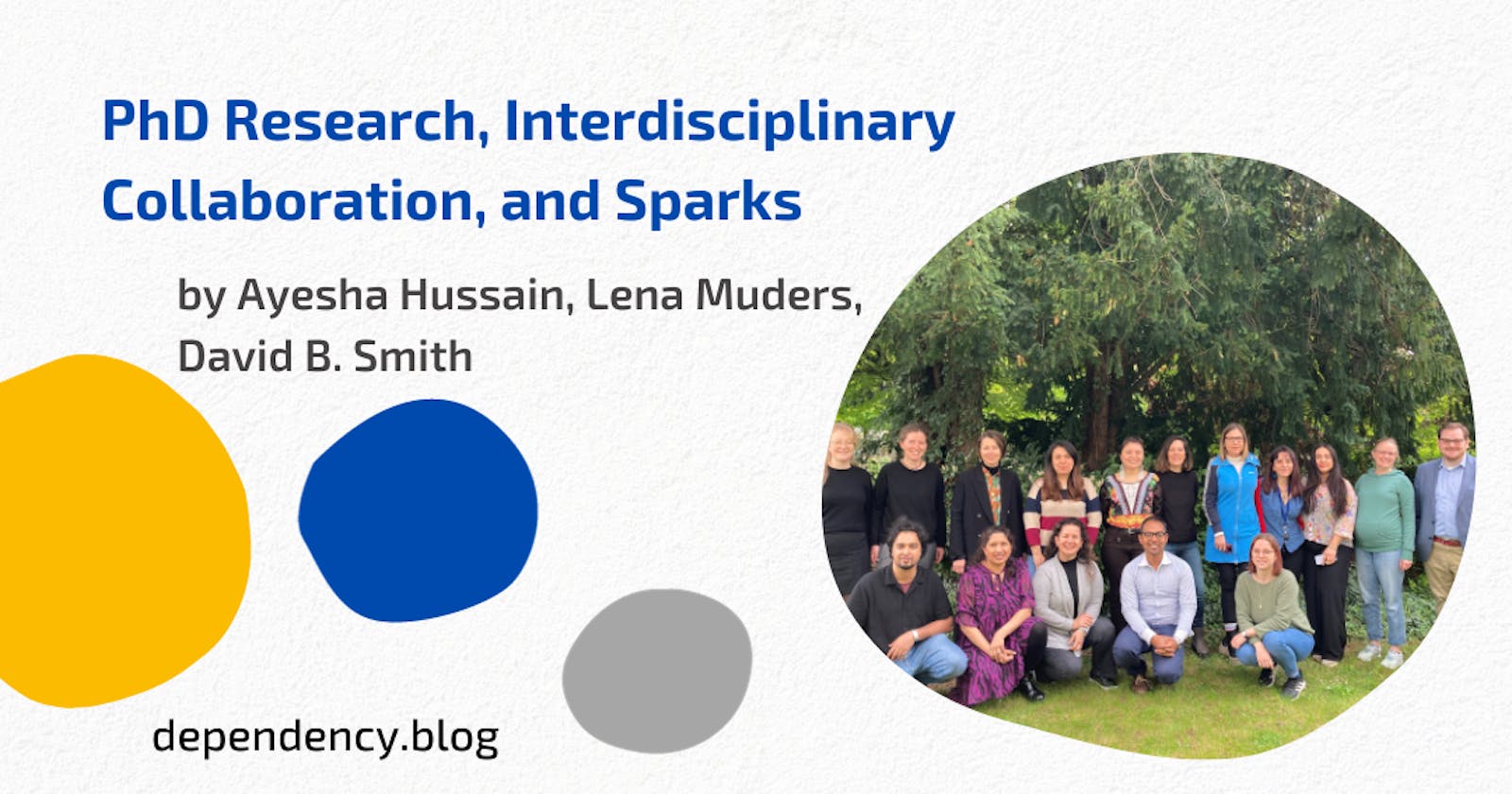PhD Research, Interdisciplinary Collaboration, and Sparks
In a 2020 advice column, the highly regarded aviation engineer and professor Ian McAndrew offered encouragement to his students. He wrote, “Research can be both lonely and rewarding… Anyone starting out to research for a doctorate should remember that hours of self-centered work has the ability to be the spark for others to progress. All research is useful to open doors or show others that door does not lead anywhere useful" (McAndrew 2020).
Striking a more pessimistic chord, disparate versions of the following quip, attributed to everyone from Mark Twain to the physicist Richard Feynman, assert, “Never confuse education with intelligence; you can have a PhD and still be an idiot.”
There is at least a hint of truth in both of these statements. Nevertheless, as it is customary to write inaugural blog posts that cast a vision for future engagement, we shall lean into the former image of doctoral research as a rewarding venture full of surmountable challenges and limitless possibilities for achievement.
To McAndrew’s point, life as a PhD Researcher at the Bonn Center for Dependency and Slavery Studies (BCDSS) has its rewards, but it is not as lonely as one might think, even though much of our time is spent transcribing interview notes or combing through dusty folios in ancient archives.
Though we come from disciplines spanning archeology, theology, history, law, social and cultural anthropology, sociology, literary studies, and more, from the hallways to the seminar rooms, regular interaction with our colleagues provides daily opportunities to ‘spark’ one another’s sense of progress.
The forty-five PhD Researchers affiliated with the BCDSS constitute one of the center’s largest cohorts. We are also among a growing number of junior scholars who have seen our early careers reframed by concrete engagement with the analytical concept of asymmetrical dependency. For better or worse, the long-term sustainability of dependency studies as a field of inquiry rests on our shoulders, at least to some degree.
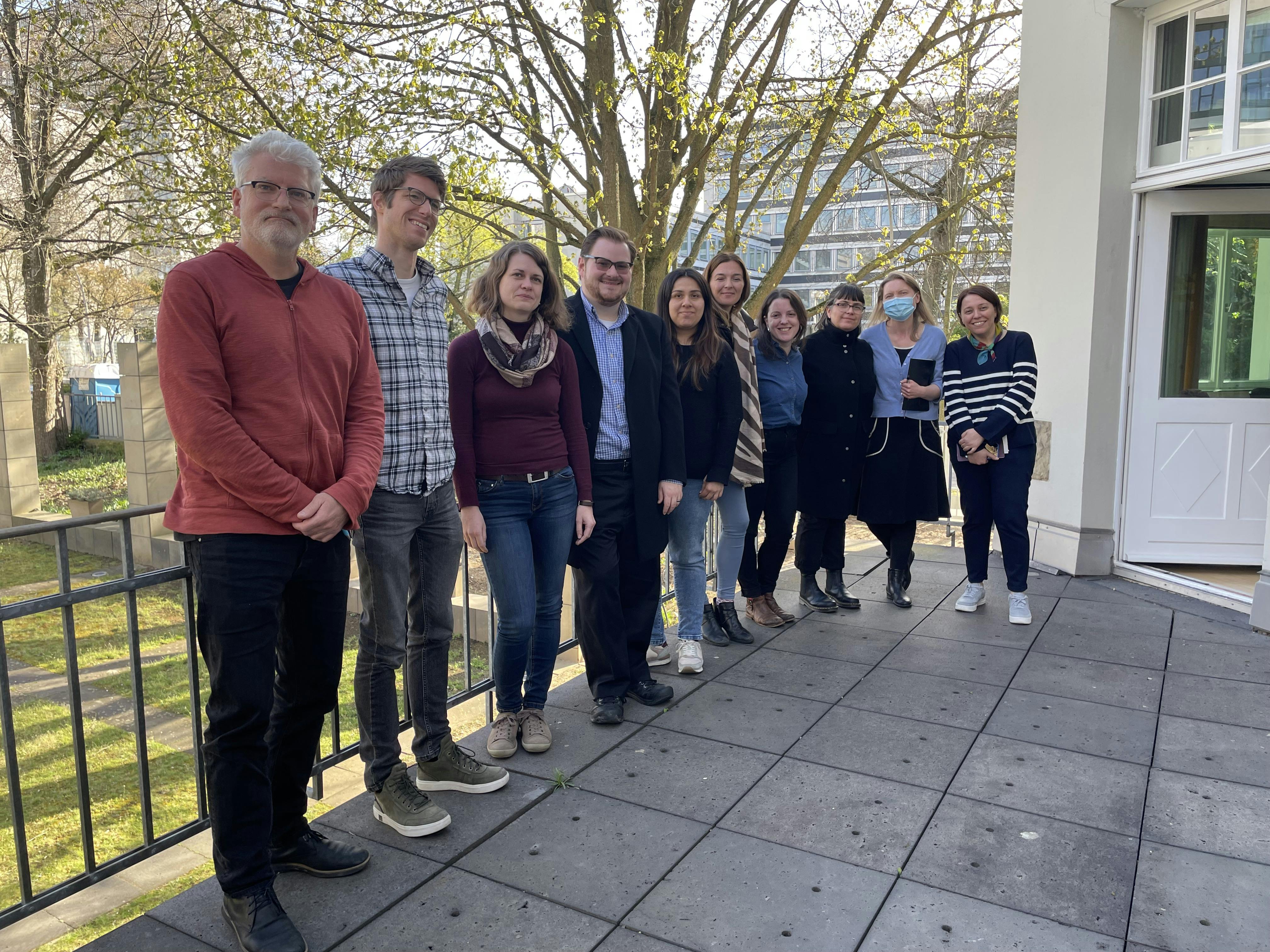
Some PhDs, Post-Docs, and Professors at a Weekly Fellows Seminar led by BCDSS Speaker, Prof. Dr. Stephan Conermann
BCDSS is unique in that it offers junior researchers numerous opportunities to engage in knowledge production alongside scholars at different career stages. Researchers from the masters level to professors are encouraged to actively participate in the center’s work. For example, doctoral candidates regularly present at conferences, lead workshops, and publish abroad. We also author conference reports, fieldwork summaries, theoretical reflections, and more that are published via mediums like The DEPENDENT cluster magazine.
Considering the various ways in which the BCDSS is already empowering junior researchers to ‘get the word out’ about their work, why do we believe our center needs a blog?
The new BCDSS Blog will complement publications like The DEPENDENT by providing a venue where readers can encounter the wonderful people and the complex processes that operate behind the scenes to produce knowledge about slavery and asymmetrical dependency.
Throughout the rest of this year, and possibly beyond, a lineup of talented PhD Researchers will post at least one blog per month. The over-arching goal of these informal publications will be to give readers a sense of what life is like at the center.
Specific reflections will cover various topics, including the development and application of theory, interdisciplinary research ethics, fieldwork reports, case studies based on archival findings, highlights from interviews with noted scholars and practitioners, pedagogical vignettes, engagement on questions of diversity and inclusion in the academe, and much more. Along the way, our colleagues from across the BCDSS, including students in our MA programs, post-docs, research group leaders, administrators, and professors, will also be able to share their thoughts, experiences, and insights.
Now that you have an idea of where we’re going with this project, we figure it is time to share a few thoughts from our fellow PhD Researchers about life at the BCDSS. To that end, we asked our peers a few questions-- somewhat serious but mundane enough to keep things interesting-- about this not-so-lonely journey we are taking together.
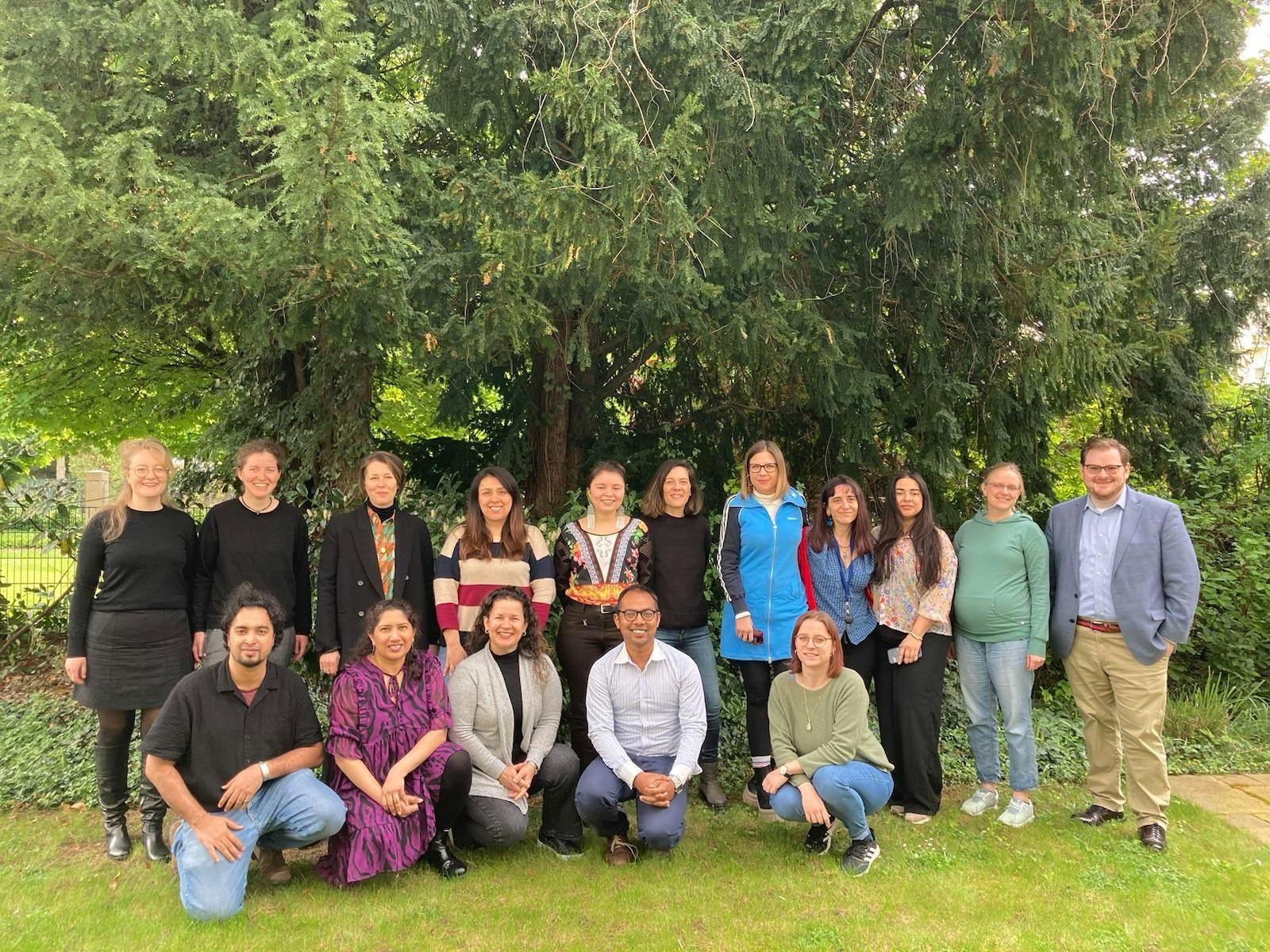
Spring PhD Brunch on April 26th, 2023
Lena asked, ‘What is your favorite place in the world to work on your dissertation and why?’
While every PhD at the BCDSS is dreaming of the day when they will finally hold their dissertation - a solid book - in their hands, working towards this goal includes diverse activities.
For some people, collecting data in archives, at museums, archaeological sites, or in crowded places all over the world is the most exciting part of their research. However, at some point, we all have to come back to Bonn, analyze our data, and write, write, write...
Many colleagues enjoy having desks of their own at one of the three BCDSS buildings, which are spread across Bonn's lovely Südstadt and the old political center in Gronau. One PhD said, "The office is my favorite place to work on my dissertation as I can focus more there than anywhere else."
A change of scenery can help you get out of a sudden afternoon low, so some folks like to switch up their work locations throughout the day. How convenient it is, then, that most of our offices are so close to the university library, where we can borrow all the books we need or find yet another quiet workspace.
For others, working from home is a welcome option. In the end, folks agree that it is often more about social interaction than the place - meeting fellow PhDs and colleagues is probably the biggest benefit of a working environment like the BCDSS.
Ayesha asked, ‘Can you recall an interaction with a fellow member of the BCDSS that sparked a new insight or invited you to rethink a foundational assumption in your work? If so, tell us about it.’
In addition to serving as the focal point of our current academic and professional goals, PhD research is, as argued by Ilhan Inan, an ‘inostensible reference and a conceptual curiosity’ in a certain issue or topic which we’re trying to analyze through careful reflection and engagement with sources (Inan 2010).
The ideas with which we begin our dissertations constantly evolve and change before we make it to the end. As we’ve already said, interaction with fellow PhD candidates, senior researchers, supervisors, and other colleagues alike provides us opportunities to present our work in interdisciplinary environments that both humble our protestations of wisdom and further our curiosity.
For example, Amalia, one of our fellow PhD Researchers, told us that a “workshop on Empire and Dependency by a senior colleague gave me new insight into the very tangible ways power and dependency are produced across time and space and among various actors.”
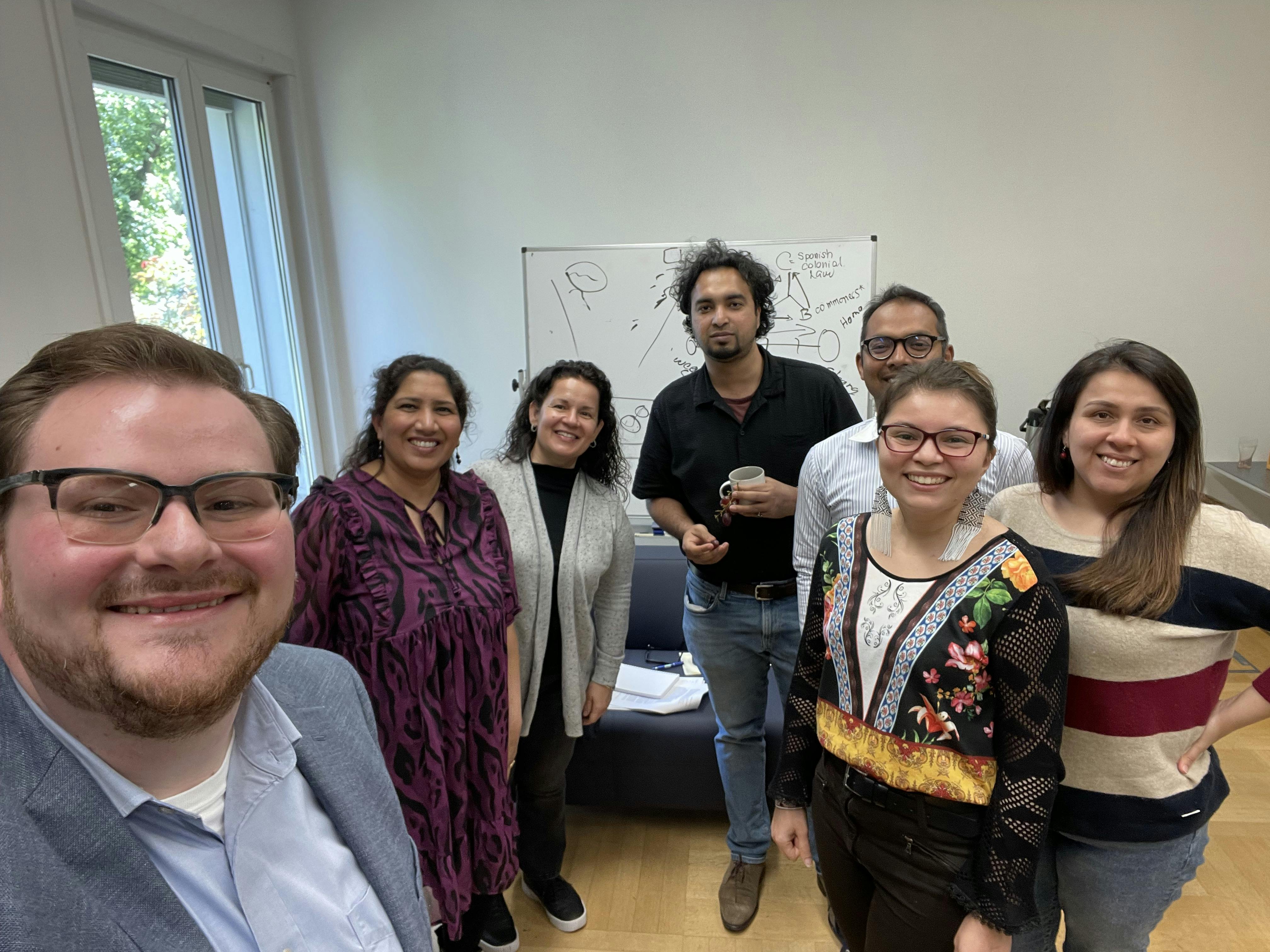
Selfie from our PhD Forum in April 2023, where Ayesha Hussain and Amalia S. Levi moderated a vibrant discussion of the new BCDSS theory paper, "The Analytical Concept of Asymmetrical Dependency" by Winnebeck, et al. (2023)
Another colleague said she was encouraged to reconsider her over-arching research methodology when, during a PhD colloquium, a respondent suggested that she employ a comparative approach in her work with other cultures. She remarked, “This helped me to think broader and go beyond the place and time frame of my own project to see the connections and interconnections on the global stage.”
Other folks at BCDSS find informal discussions, i.e., beyond the confines of official seminars, workshops, and working groups, more productive. For example, one PhD told us about a randomly organized coffee break at a conference that lead him to refine his approach to “de-centering the labour market and the politics of space to address everyday life precarity.”
David wanted to know, ‘What is your favorite place to take a lunch break with colleagues from the BCDSS?’
The number-one hit is “Ginger’s,” which describes itself as a “relaxed eatery for typical Asian meals.” Other folks prefer more scenic options, where they can enjoy a brown-bag lunch. The number-one spot for those who bring lunch from home is the roof-top balcony at our Niebuhrstraße building, where many of our PhD Researchers have offices. According to others, during the spring and summer months, it’s just as easy to head downstairs, out into the backyard garden, and settle down at one of the picnic tables under a shade tree.
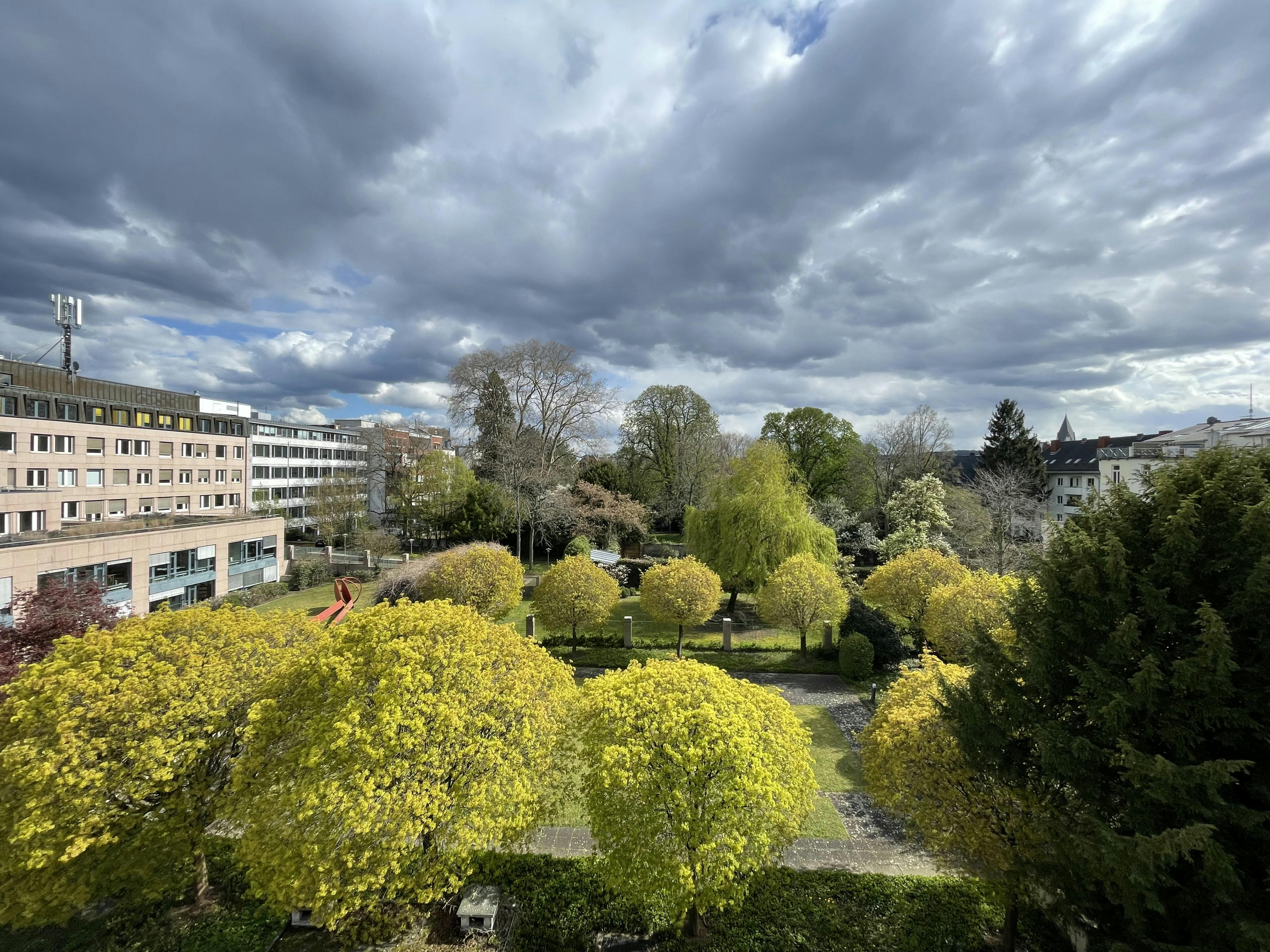
View from the Rooftop Balcony of our Niebuhrstraße Office on a Spring Day
For those who have regular business at the university’s main building, the Hofgarten Campus Mensa is the go-to spot. It’s nothing special: In fact, it’s just a huge tent that serves as a makeshift dining hall while the new one is under construction. All these options are great, but David is sticking by his favorite lunch spot, i.e., the Rheinpavillion Café, housed in an oval mid-century modern structure with panoramic views of the Rhine.
Suffice it to say, PhD life at the BCDSS is a productive blend of everyday experiences, disciplined research, and interdisciplinary collaboration. Sometimes unexpectedly, shared engagement with related topics sparks new insights, not only amongst our doctoral cohort but within the broader disciplines we represent.
As the quote with which we began this post suggests, our conversations will likely continue to generate new forms of creative activity in the years to come. While we ought not to confuse the formation we receive from the BCDSS with intelligence, perhaps our interdisciplinary collaboration will provide us with some measure of protection against that unique form of educated idiocy with which the authors of our second prompt were so concerned.
In the meantime, we hope you will stay tuned for future posts. The new BCDSS Blog will continue to provide a creative space for scholars affiliated with the center to share their research interests and reflect on their academic experiences.

